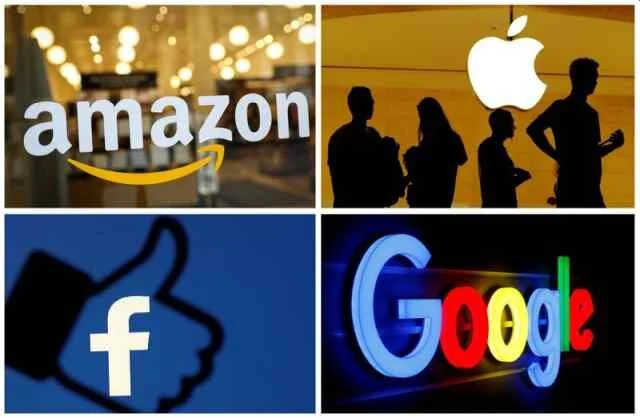Regulation of Tech Companies is Easier Said than Done
Big Tech companies Amazon, Apple, Facebook, and Google, behind their usefulness and economic impact, pose risks to public safety that the Biden Administration has pledged to contend with.
In the age of social distancing, social media has become quite useful in connecting with people whether it be friends, work meetings, or classes. While social media was already influential before the pandemic — its usage surged when the lockdowns began. This has created problems many feared would come, prompting the question: should tech companies be regulated?
The onset of the coronavirus pandemic precipitated a rush to social media, where some began to post conspiracy theories about how the pandemic started and question the virus was a hoax. As the pandemic became a partisan issue, a lot of misinformation was spread on platforms who did little to handle the situation.
The issue quickly worsened to the point where the Capitol riot on January 6th was orchestrated using social media. Many lawmakers believed this was the final straw and on March 22nd, the CEOs of Facebook, Twitter, and Google were called to testify before Congress on the role their individual companies played in the Capitol riot and their overall role in society.
A unique and comforting characteristic of the hearing was the bipartisanship opposition of Big Tech — especially in the wake of the tumultuous 2020 election. The riot has given lawmakers a perfect opportunity to change how social media companies operate and reform Section 230 of the Communications Decency Act. This Act allows tech companies to protect themselves from lawsuits that may arise due to posts made by their users; many politicians believe this is an issue because it does not allow tech companies to be held accountable for the extreme content they facilitate.
Lawmakers are determined to find a way to fix the issue; especially considering Twitter CEO Jack Dorsey admitted that his company indeed played a role in the riot, however, Facebook and Google dodged the question. Tech companies have placed labels on posts they believe may contain misinformation about the election or the pandemic, however, the only major step they have taken in curtailing misinformation is by temporarily banning former President Donald Trump from Facebook and Twitter; however, this raises a question about free speech and the effectiveness of this decision.
The handling of tech companies becomes partisan when questions arise on the issue of free speech, as both Democrats and Republicans have different ideas on how to address censorship and content regulation. Democrats want to prioritize stopping the spread of racism and misinformation while Republicans want to focus on limiting censorship. Tech companies claim they want to stop racism and misinformation, however, when asked why the hashtag “#chinesevirus” was not banned, Twitter claimed they did not remove racist hashtags because they believed the hashtags could be used to combat racism.
However, there may be a problem with limiting what is posted online. The next logical question that must be asked is, who determines what is allowed and what is not? Clearly, racist rhetoric and hate speech are terrible, but there are no laws banning these types of speech due to the fear they will violate free speech. Thus, free speech is a hot topic issue that is not always clearly defined, allowing a lot to be left to interpretation and making regulation very difficult. Although this is a concern, it should not be the priority of Congress at the moment, rather it should be the almost limitless freedom tech companies enjoy.
Tech companies are well protected due to Section 230 and are almost never held accountable for their actions. As such, there has been a rise in bipartisan legislation introduced such as the PACT Act and the Safe Tech Act. The PACT Act would require tech companies to be more transparent about how their companies operate, something Facebook acknowledged it could improve, while the Safe Tech Act would force tech companies to be held accountable when posts on their platforms lead to real-life consequences.
There is no doubt more should be done to hold tech companies accountable, however, the issue is how should they be held accountable? There is no clear answer, and every action has a consequence. One thing is certain, tech companies are powerful and influential and their power needs to be reigned in before the situation spirals out of control leading to more events similar to that of January 6th.

